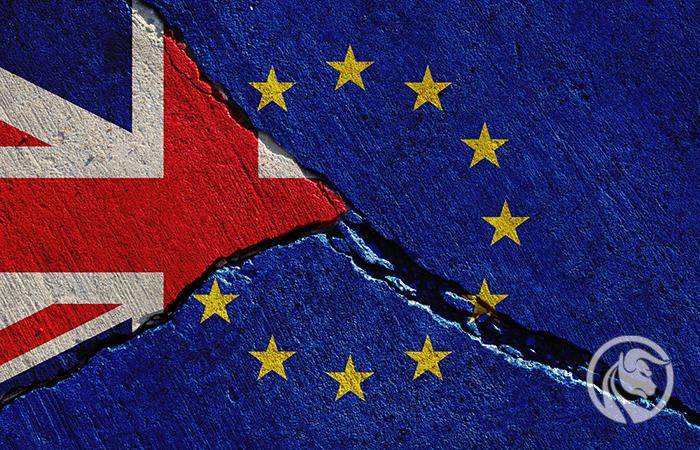Brexit - the end of the saga. There is a pound jump, but what next?
Brexit was to become synonymous divorce of Great Britain with the European Unionbut he quickly lost his sense and became synonymous with the never-ending saga. After many political changes, it is finally expected to take effect on January 31, 2020. Will this date mean the real end of the problem-full and twisted saga, or just an introduction to a more complicated chapter? What should investors expect?
Brexit - to be continued?
- The uncertainty still concerns the end of the transition period and the state of trade relations with the EU after 2020. However, when it becomes clear that the negotiation period will be extended (probably still in the first half of the year), it will give more room for the appreciation of the pound - explains the chief economist of TMS Brokers, Konrad Białas.
After receiving consent from Queen Elizabeth II, Great Britain will cease to be a full member of the European Union. What does it mean? Are controls and duties returning to the borders? No. At least not until the end of the year, since from February 1 to the end of 2020 a transitional period will apply. This means that thawing food trucks will not suddenly get stuck on the border, and all lights will not go out in London City. The date of divorce is, however, important for the Islanders' decision-making in the EU. During the transition period, British politicians must negotiate the shape of trade regulations with the EU.
February 1 will not become a turning point, among others for Polish companies operating on the British market. However, it will be an operational and financial challenge, among others due to maintaining increased inventory and sales of worse-selling products. The risk can also be seen on the side of devaluation of the pound or reduction of importers' profitability. However, Great Britain will remain in the customs union with the EU and will be a participant in the common EU market, i.e. there will be no customs or other barriers to trade.
So who will lose the most on Brexit?
On January 16, Minister of Investment and Development Jerzy Kwieciński stated that "foreign capital has been escaping from Great Britain for two years now" and the value of assets withdrawn so far is estimated at hundreds of billions of euros.
In his opinion, the largest part of this amount falls on the financial sector, and production and service companies are also planning to move from the Islands to the continent, for which "the logistics issues that will have to be solved or certificates that must be obtained after Brexit will be associated with organizational difficulties and additional costs ". He noted, however, that he sees great interest in companies, e.g. from the service sector, for which Poland is an attractive place to invest, because the act on supporting new investments was adopted last year, changing Poland into the so-called one special economic zone.
So if we assume such a scenario that the most affected by Brexit will be industries that are highly sensitive to administrative distance (e.g. they are subject to a high level of regulation, they produce necessities or services, they are large employers or governmental suppliers), then the importance of decisions should be considered Bank of England. Especially since better-than-expected PMI readings from Great Britain have removed pressure from policy makers and have given a gate to refrain from changing monetary policy parameters.
- The Bank of England kept the main interest rate at 0,75 percent. by a vote of 7-2. The market priced in the 40% probability of a cut, so after the decision we see a jump of the pound to USD 1,3090. The bank lowered its growth forecasts and assumes inflation will remain below the target until the end of 2021. For this reason, the bank removed from the communiqué the fragment stating that it assumes a "gradual tightening of policy" over the forecast horizon - says chief economist TMS BrokersKonrad Bialas.
The BoE's adoption of a wait-and-see bias should stop blocking the pound, which still has an enormous risk premium built around fear of a no-deal Brexit in the medium term. Although the Brexit date is already a fact, the uncertainty still concerns the end of the transition period and the state of trade relations with the EU after 2020. However, when it becomes clear that the negotiation period will be extended (probably still in the first half of the year), it will give more room for the appreciation of the pound - explains the economist.
source: DM TMS Brokers press material






















![Forex Club – Tax 9 – Settle tax on a foreign broker [Download the Application] Forex Club - Tax 9](https://forexclub.pl/wp-content/uploads/2024/02/Forex-Club-Podatek-9-184x120.jpg?v=1709046278)
![Trading View platform – solutions tailored to the needs of traders [Review] trading view review](https://forexclub.pl/wp-content/uploads/2024/03/trading-view-recenzja-184x120.jpg?v=1709558918)
![How to connect your FP Markets account to the Trading View platform [Guide] fp markets trading view](https://forexclub.pl/wp-content/uploads/2024/02/fp-markets-trading-view-184x120.jpg?v=1708677291)
![How to invest in ChatGPT and AI? Stocks and ETFs [Guide] how to invest in chatgpt and artificial intelligence](https://forexclub.pl/wp-content/uploads/2023/02/jak-inwestowac-w-chatgpt-i-sztuczna-inteligencje-184x120.jpg?v=1676364263)


![WeWork – the anatomy of the collapse of a company valued at $47 billion [WeWork, part II] wework bankruptcy story](https://forexclub.pl/wp-content/uploads/2024/04/wework-bankructwo-historia-184x120.jpg?v=1711729561)
![Adam Neumann – the man who screwed up Softbank [WeWork, part AND] adam neumann wework](https://forexclub.pl/wp-content/uploads/2024/04/adam-neumann-wework-184x120.jpg?v=1711728724)





![How to transfer shares to another brokerage office [Procedure description] how to transfer shares to another brokerage house](https://forexclub.pl/wp-content/uploads/2024/03/jak-przeniesc-akcje-do-innego-biura-maklerskiego-184x120.jpg?v=1709556924)

![The most common mistakes of a beginner trader - Mr Yogi [VIDEO] Scalping - The most common mistakes of a beginner trader - VIDEO](https://forexclub.pl/wp-content/uploads/2024/03/Scalping-Najczestsze-bledy-poczatkujacego-tradera-VIDEO-184x120.jpg?v=1711601376)
![Learning patience: No position is also a position - Mr Yogi [VIDEO] Scalping - Learning patience - No position is also a position - VIDEO](https://forexclub.pl/wp-content/uploads/2024/03/Scalping-Nauka-cierpliwosci-Brak-pozycji-to-tez-pozycja-VIDEO-184x120.jpg?v=1710999249)
![When to exit a position and how to minimize losses - Mr Yogi [VIDEO] Scalping - When to exit a position and how to minimize losses - VIDEO](https://forexclub.pl/wp-content/uploads/2024/03/Scalping-Kiedy-wyjsc-z-pozycji-i-jak-minimalizowac-straty-VIDEO-184x120.jpg?v=1710336731)





![Where to look for investment opportunities? Forecasts for the XNUMXth quarter [Download Ebook] forecasts for the fourth quarter](https://forexclub.pl/wp-content/uploads/2023/10/prognozy-na-iv-kwartal-300x200.jpg?v=1697785512)












